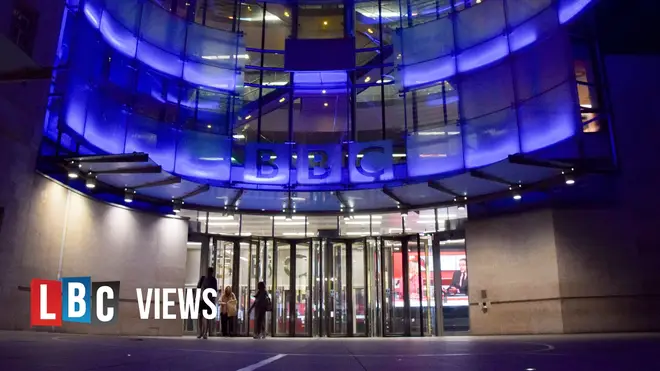
Paul Brand 10am - 12pm
13 July 2023, 16:10

After days of intense speculation about the identity of the BBC presenter alleged to have paid £35,000 over 3 years to a young person for sexually explicit photographs, and an online guessing game (“Is it X?” “No, it is Y” said thousands of twitter users), Huw Edwards’ family disclosed his identity on their terms.
While his name was trending on social media, he was not outed by a publicity hungry politician or an impulsive newspaper editor.
What the keyboard enthusiasts had either forgotten, or didn’t know, or maybe didn’t care anyway, is that postings on social media can be as dangerous as anything published by the media.
That’s why, although they were aware of his identity days earlier, newspapers, radio and television channels, advised as they are by specialist media lawyers, did not name the presenter.
Their added problem was necessary caution about breaching the presenter’s privacy which is enshrined as Article 8 of the Human Rights Act 1998, and reaffirmed in Article 2 of the Editors’ Code of Practice 2021.
The law is clear: until a person is arrested and charged, that person’s reasonable expectation of privacy trumps the public’s insatiable desire to know.
It’s not only the law, but it has been the law for some time. It safeguards those who may be wrongly accused in the media or online from the catastrophic personal and reputational consequences of being unfairly or falsely named and shamed (the very limited exceptions are outside the scope of this brief note).
As a consequence of the allegations swirling around the BBC presenter story and it being heavily publicised, but lacking a named central character, social media enthusiasts rushed to fill the gap that nature, so it is said, abhors.
Inevitably some high-profile BBC presenters suffered from being wrongly identified as the presenter in question.
Others threatened legal claims for libel against their (often anonymous) accusers since there are legal means of obtaining their names and then suing them.
And in these circumstances, a defence of, say, “it was only banter”, or “I didn’t know I was defaming anyone” can’t possibly succeed.
Tweets are not casual bar room chat. They can be actionable and libellous statements. And, if they are sued, the damages and costs awarded could bankrupt the senders.
Both Sally Bercow, wife of the then Speaker of the House of Commons, John Bercow, in 2013 and Katie Hopkins, columnist, in 2017 were found liable in damages and costs for libelling Lord McAlpine and Jack Monroe respectively by posting defamatory tweets.
Other, less well-known, social media users have also made false online accusations and had to apologise.
If lawyers remember just one maxim from their legal education, it is usually this: never publish (or post) a statement which you wouldn’t want a Judge to read in a Court a year later.
If only non-lawyers could learn that lesson too, then social media would be in a much healthier state.
So, pause before pressing the “send” button. Pause – and then maybe press “delete” instead.